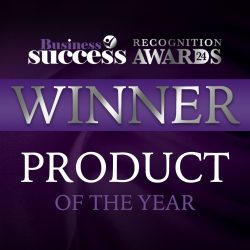In a landmark decision, McDonald’s has lost the right to use the term “Big Mac” in relation to chicken sandwiches within the European Union (EU). This case serves as a crucial reminder for businesses about the importance of maintaining and protecting intellectual property rights.
The Case Unfolded
The issue began in 2017 when Irish fast-food chain Supermac’s sought to revoke McDonald’s EU trade mark for “Big Mac.” Registered in 1996, this trademark covered a variety of products including meat, fish, and chicken sandwiches, as well as a range of restaurant services such as takeaway and drive-through facilities.
Supermac’s argued that McDonald’s had not made genuine use of the “Big Mac” trade mark specifically for chicken sandwiches. Despite McDonald’s and the European Union Intellectual Property Office (EUIPO) presenting evidence such as advertisements and promotional materials, the European Court of Justice (ECJ) ruled that the evidence was insufficient to prove the trademark had been used adequately in relation to poultry products.
Why Genuine Use Matters
Under EU law, trade mark rights can be revoked if the trade mark has not been genuinely used within a continuous five-year period. This case highlights how critical it is for businesses to not only register their trademarks but also actively use them across the specified categories to retain their rights.
It too should be remembered that trade marks should be registered in good faith and not just registered to block another’s use of them.
The Broader Implications
The ECJ’s decision has broader implications beyond just McDonald’s and Supermac’s. Other businesses can now use the term “Big Mac” for their poultry products within the EU. This opens the market to more competition and showcases the significance of thorough trade mark protection strategies.
Lessons for UK Businesses
So, what can your business learn from this high-profile case? Here are a few key takeaways:
- Maintain Active Use: Ensure your trade marks are actively used in connection with all the goods and services for which they are registered. This can involve consistent marketing, sales, and documentation of such use.
- Monitor and Review: Regularly review your intellectual property portfolio. Identify any trade marks that are not being used as intended and consider whether they should be renewed, modified, or allowed to lapse.
Protect Your Business Today
The McDonald’s case is a stark reminder of the potential risks with intellectual property and the importance of staying vigilant. At National Business Register, we are here to help you secure your business’s future. Contact us today to learn more about our services and how we can assist you in safeguarding your intellectual property.
Remember, protecting your business name and trade marks is not just a legal necessity—it’s a strategic advantage.
Looking for IP or Trade Mark Protection for Your Brand?
If you wish to gain exclusive rights to your business name, logo, tag line or design within the UK or globally, National Business Register Group (NBR) has been assisting businesses with trademarks and brand protection since 1984. Contact NBR on Info@nbrg.co.uk or by calling 0800 069 9090.
Looking for Business Name Protection?
If you want more information about how to protect your business name in the UK without registering a trade mark, contact us at Start.Biz where we will be able to assist with business name protection. Start.Biz is a subsidiary of NBR, please email Info@Start.Biz or call 0800 069 9090.


